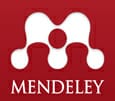Word Cloud Analysis and Business Model of Science Techno Park in Indonesian Universities
Main Article Content
Abstract
The government issued a presidential regulation on national entrepreneurship development to strengthen the economic structure, and the government will add 1 million entrepreneurs. Universities play an essential role but must involve the industry and create a conducive environment. Science Techno Park unites the sector and academia by providing an environment that fosters interaction. Presidential Regulation No. 18 of 2020 mandates the establishment of Science Techno Parks based on higher education institutions. We studied the future of science and technology parks in Indonesia by analyzing news articles from websites between 2019 and 2024. The results of the word cloud analysis showed that the word "technology" was the most frequently encountered during coding, followed by "science," "research," "zone," and "innovation," which are the main elements of the STP. From the business model canvas, the most expansive customer segments include students, alums, researchers, startups, and industry. The value proposition is oriented towards technology in line with the university's competencies. The conclusion of the business model for science technoparks in Indonesian universities is in the development stage, with a focus on strengthening the ecosystem through innovation and industry collaboration.
Article Details

This work is licensed under a Creative Commons Attribution 4.0 International License.

International Journal of Business Studies by Sekolah Tinggi Manajemen IPMI is licensed under a Creative Commons Attribution-ShareAlike 4.0 International License.
Authors who publish with this journal agree to the following terms:
1. Authors retain copyright and grant the journal right of first publication with the work simultaneously licensed under a CC BY-SA Creative Commons Attribution-ShareAlike 4.0 International License that allows others to share the work with an acknowledgement of the work's authorship and initial publication in this journal.
2. Authors are able to enter into separate, additional contractual arrangements for the non-exclusive distribution of the journal's published version of the work (e.g., post it to an institutional repository or publish it in a book), with an acknowledgement of its initial publication in this journal.
3. Authors are permitted and encouraged to post their work online (e.g., in institutional repositories or on their website) prior to and during the submission process, as it can lead to productive exchanges, as well as earlier and greater citation of published work.
4. Copyright Transfer Agreement Form can be downloaded HERE.











